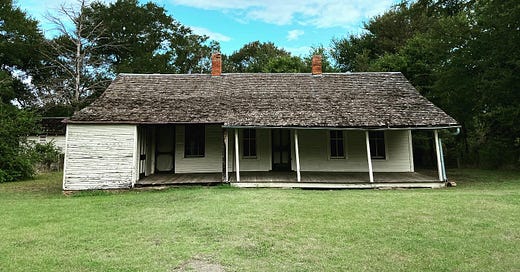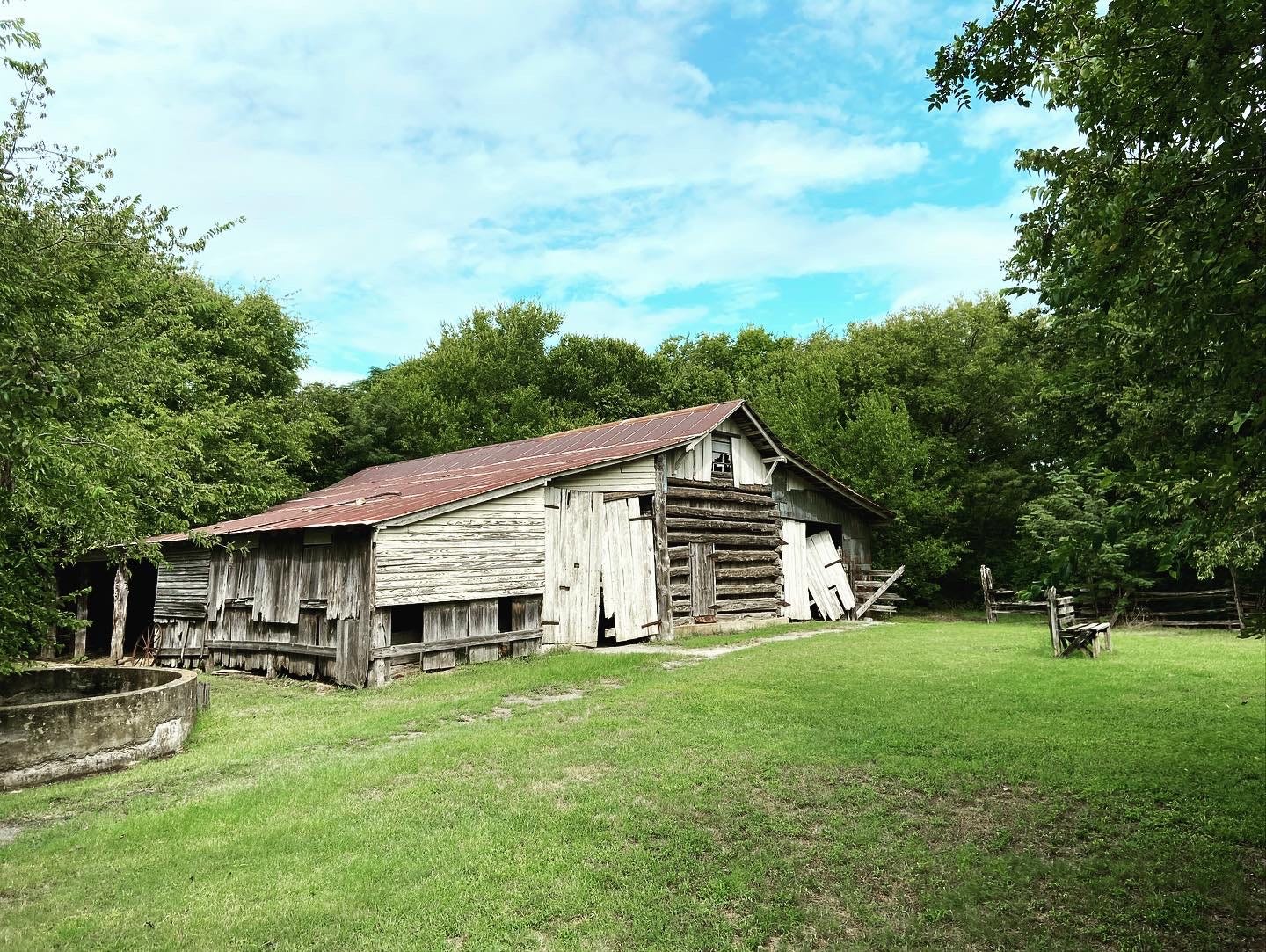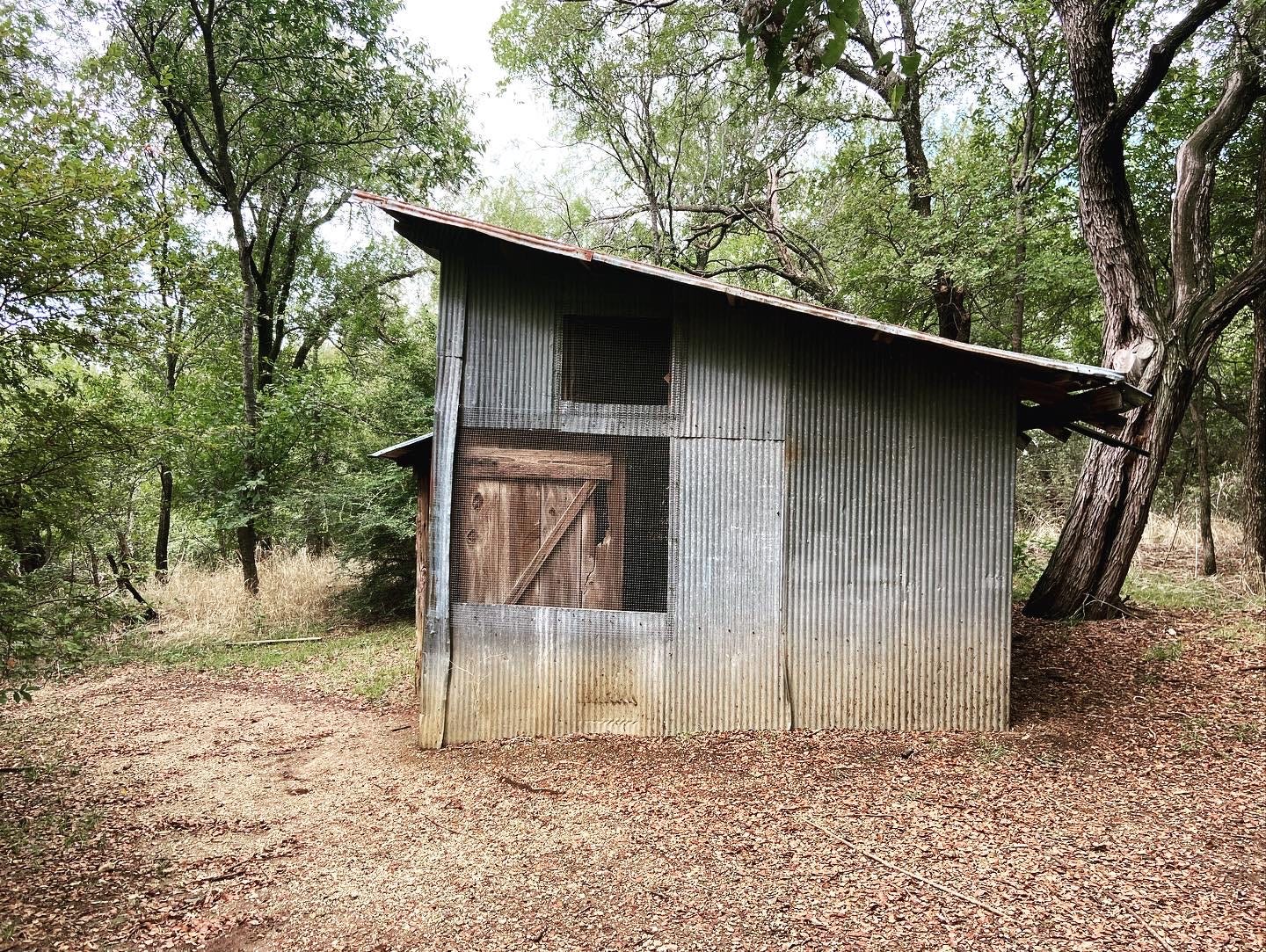Recently we took a trip about an hour south of us, to a working farm with glamping facilities called Purdon Groves. We were going to stay in a large tent with a king sized bed, air conditioning, and a wooden floor. The intent was to just get away for a day and relax, then tour the farm.
Unfortunately it didn’t work out the first time around. A couple hours into our stay the host alerted us to a tornado watch in the area. We decided it wasn’t safe to stay, considering we were in a tent and miles from the nearest shelter. So we rescheduled our stay and headed home.
But in the short time we were there, I began reading a collection of essays from Wendell Berry called Bringing It to the Table. And in the words of the old time preachers, I got convicted.
In the book, Berry details the decline of small, family farms in the United States due to the rise of industrial agriculture and its affects on our health.
So I’ve been thinking about farms lately. What they used to be, what they are now, and how we eat. The following is just a collection of notes from visits and research into food and farming in my area.
First up is the Penn family farm agricultural history center. I explored this collection of old farm buildings one day while hiking at Cedar Hill State Park. John Anderson Penn settled the area southwest of Dallas in the mid-1800s, when the area was known as the Cedar Mountains.
As I toured the old buildings, I kept wondering to myself how it was possible to farm the area. It’s very hilly, with lots of trees, and thin soil. Two things then occurred to me: one, directly west of the old farm is Joe Pool lake, a manmade lake that has only been around since 1985. Perhaps the land where the lake is now was once flat and easy to farm. Secondly, I realized I didn’t know much about farming, despite having grown up in the country.
I lived in the middle of nowhere when I was a kid, on a mid-sized patch of land full of fields and forest. We farmed, to an extent. We had a small herd of Hereford cattle, never more than 30 or so head. I joined 4-H in third grade and raised show pigs for the next five years. We always had a garden each summer, though the size varied according to how ambitious we felt.
But we never farmed for profit. The pigs were for the county show, for competition. The gardens provided fresh vegetables for us to eat, and when we had extra we gave them out to friends and family. The cattle did earn a bit of profit most years, but not enough to earn a living.
So when it comes to farming to sustain a livelihood and produce food for the community, I’m pretty green. And that’s one of Berry’s most prescient points—most people don’t know where their food comes from or how it got to their table.
And if I grew up on a farm (semi-farm?) and only sort of understand where my food is coming from, how much do people who grew up in only urban or suburban environments really know about our food chain?
Going forward, I want to be a little more aware of how my food gets to my table, and where it comes from, and what are some of the challenges facing farmers and food producers. This isn’t some new thing I’m thinking about. Plenty of ink has been spilled about eating more sustainably and being more intentional about buying the food we eat. A few years ago my family started buying cage-free eggs and free range beef. It’s not much of a change, but it’s something.
But that collection of essays from Berry made me think of our food supply chain and economy as a whole completely differently. I think just knowing something about how food is made—how it’s grown, and how it’s cooked—keeps us grounded. And that’s all I want to accomplish from this—just a bit more thoughtfulness on food and where it comes from.
Recommendation:
Berry’s poetry is peaceful to read, and I’d recommend it. I’m fond of A Timbered Choir.
Also, Emily the Criminal is a really fun movie if you’re looking for a crime/suspense film. Check out the trailer here.








Marrying into a family of west coast lunatics has helped me grow a bit more aware of this stuff too. My sister-in-law, who now lives next door, recently went in on a half a cow that she split with us. No, it didn't taste significantly different (though it was very good) nor did it seem like it changed our lives, but it was awesome to know exactly where this cow came from and to support a local farm. I'd never once cared (or thought I cared) about any of that, but now I know that it ever so subtly makes a difference.
Thanks for sharing. I think about this kind of thing a lot, and how divorced we are from the earth and her rhythms. Every generation knows a little bit less. I agree we have to do what we can, but it is hard for me not to feel a bit resigned with the big picture of it all.